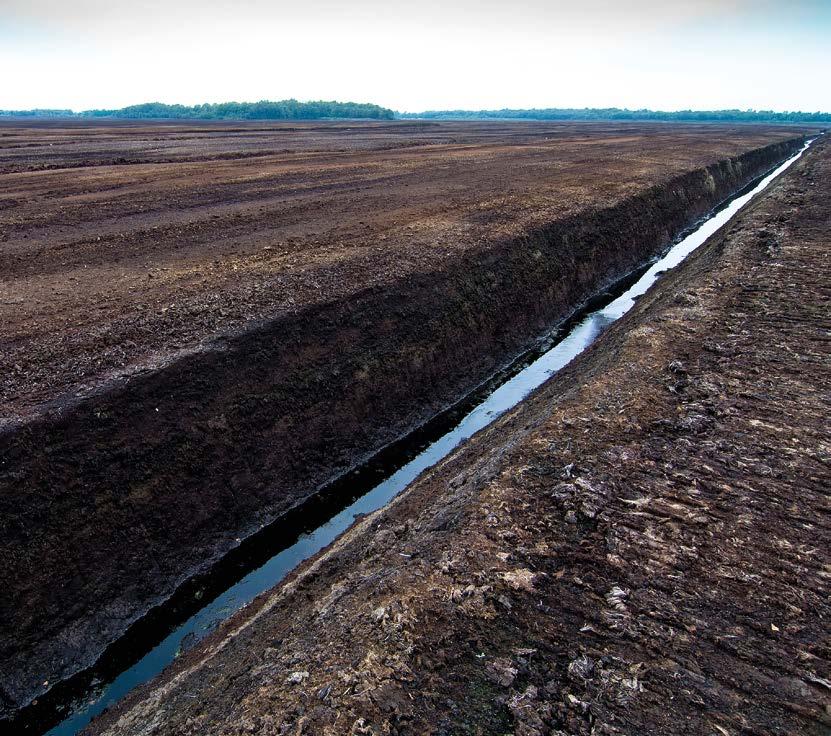
3 minute read
Grow your own, help the planet
Are you among the many people out there who have always wanted to grow food but never got round to it? This is the perfect time of year to have a go, says Andrew Mather.
It is often not appreciated how growing some of your own food can be of benefit to your local wildlife. Not only are you avoiding transporting food from afar but you are also providing nourishment for pollinators. Whether you have a windowsill, backyard or large garden there is something you can grow for your kitchen.
There are so many options for things to grow and so much to learn it can feel intimidating and overwhelming to know where to start. Maybe some basic green leaves in the form of lettuce and herbs would be ideal. Ironically these are some of the easiest things to grow whilst per weight being some of the most expensive to buy.
If you have never experienced the joy of seeing a seed that you have planted pop its head up above the earth and show itself transformed into a green shoot then you are truly in for a treat. It is like some form of magic that never wears off, no matter how many years you do it.
Get some peat-free seed compost, which is a finer compost ideal for smaller seeds, and have a go. Very small seeds, such as those of lettuce, need only covering with a fine sprinkle of compost while bigger seeds, such as nasturtiums (another easy wildlife friendly edible flower good for the novice), can be pushed into compost to a depth three times their size before being covered.
Small shoots can be separated and divided when they are around two inches high and re-planted into individual pots. Ultimately, like looking after our precious Earth, the secret to successful growing is in part down to looking after the soil. Apart from the sun and additional feed you add, any plant will only gain nutrients from the soil/ compost it has access to. It is essential to use peat-free compost as we have learnt to our cost how much damage using peat causes our environment.
It is important to think about what space you have before deciding what to grow. If you have only a yard with no access to the earth the make sure the pots you use are big enough for what you are trying to grow and be aware that you may need to add additional feed to these plants in pots.
If you have a window that faces south and gets lots of sun then this could be a great space to grow some plants such as chillies, basil and tomatoes that enjoy more heat and sun.
More traditional vegetables such as runner beans and beetroot require less sun if you have a shadier spot. Nasturtiums and borage are wonderful wildlife-friendly herbs that are beautiful and easy to grow from seed. If you plant them in the spring you can look forward to a summer of being visited by you local bees and other pollinators.
The Wildlife Trust is involved in food growing projects such as at the Grange Community Gardens in Ribbleton, Preston and at The Greenhouse Project in Witton Park Blackburn.




Pesto recipe
Simply add the following into a blender for some delicious home made pesto
1 healthy bunch of wild garlic leaves
1 healthy bunch of parsley (either flat or curly)
1 healthy bunch of mint leaves
The juice of half a lemon
Toasted nuts and seeds –walnuts and sunflower seeds dry fried in a non-stick pan until golden brown are ideal
Salt and pepper
Olive oil added until you are happy with the texture
Add some nasturtium leaves if you like a little kick in your pesto ere at The Wildlife Trusts, we know how important it is that everyone has the opportunity to get out and enjoy nature. Across the UK, we look after around 2,300 nature reserves to help ensure that no matter where you live, you can enjoy a walk on the wild side. But nature can be sensitive. There are animals that are easily disturbed, plants at risk of trampling. Sometimes we have to impose restrictions to keep wild places wild.
Feel free and welcome to come along and see these lovely spaces, join the regular volunteers and get some tips from seeing a wide variety of plants growing in different settings. Community gardening brings the joy of working together without the responsibility of having to do all the work yourself.
Once you have grown some mint or parsley you can combine then with some wild garlic leaves which can be foraged at this time of year to make your own pesto. Enjoy.
Our communications recently have had a real focus on getting this message out to the public. We know our members are wildlife lovers that truly care about nature, so we wanted to highlight some of the issues that you’re helping us prevent by respecting nature reserves and the special species they protect.













